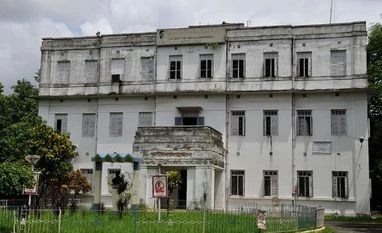Bengal Chemicals and Pharmaceuticals (BCPL), India's first indigenous pharmaceuticals company still faces major challenges on the financial front, which might hinder the company's growth in the coming days.
The primary concern, which plagues the company's top management, is the pay-scale that not only demoralises the workforce but prevents further recruitment. This, in turn, is forcing the company into the low-growth cycle.
The entire staff in BCPL is subject to the 1997 pay scale, which is much lower when compared to other government-owned firms in the category.
The company posted a Rs 4 crore profit in the last fiscal year, yet it faces an accumulated loss of Rs 260 crore and its net worth is at a negative Rs 184.6 crore.
At the given pace of growth, the senior management is of the view that will take at least another 10 years for the accumulated losses to erode and the company's net worth to turn positive.
"Hence, we are not able to revise the pay scale which in turn is limiting our scope of future growth. We need to have the efficient manpower and namely, field staff or medical representatives who can help us expand into the retail segment", P M Chandraiah told Business Standard.
He reasoned that since the company's pay scale is at 1997 levels, it is not able to offer competitive remuneration to attract new or trained talent to implement its go-to-market strategy. The salary which can be offered is lower by three times than the prevalent rate for freshers.
As a result, while the company faces the inability to scale up its retail business which can drive growth, it is engaging contractors for the supply of labourers to scale up production. The company is heavily dependent on orders from various state governments for running the business.
Long caught up with frozen revenue and mounting costs, primarily wages, procurement and power overheads, BCPL, for nearly 70 years found it impossible to post a profit gradually shrinking into obscurity. The government also seemed to lose hope in India's premier pharmaceuticals company as labour problems and trade unionism tightened its noose with the management unable to unshackle the fetters. Last December, it recommended the company to sell off part of its land.
However, after Chandraiah took the additional charge as its managing director, first and foremost he forced the trade unions to get disciplined and make them understand that their pension depends on the company's performance.
The senior management, aware of the scaling problems also realised that the company can be turned profitable by not just focussing on the top line, but by adjusting and limiting the daily outgo.
As a result, while heavy cost-cutting measures were undertaken, the company also rationalised its rental income which nearly doubled in the last fiscal year. Indeed, during 2016-17, BCPL's top line dipped marginally but its expenses went down by over 13 per cent helping the company to post a net profit.
"We also negotiated with our suppliers which trimmed input costs as well", Chandraiah recollects.
Now, knowing well about BCPL's limitation to scaling up the top line, the senior management, has opted to lower costs to increase the bottom line.
In the second place, after the union government, last year passed a resolution of land sale for such companies, BCPL was betting to churn at least Rs. 300 crore by selling 25 acres of land near its Panihati factory in West Bengal, which could have cleared an outstanding debt f Rs. 205 crore at a single go.
However, the Calcutta High Court has stayed the land sale after the unions protested.
Nevertheless, a BCPL official has projected the company's earnings from the generic drugs to double to Rs. 130-140 crore by 2020 while the home care chemicals line of business to grow from the current Rs. 35 crore to Rs. 60 crore in the same timeframe.
Unlock 30+ premium stories daily hand-picked by our editors, across devices on browser and app.
Pick your 5 favourite companies, get a daily email with all news updates on them.
Full access to our intuitive epaper - clip, save, share articles from any device; newspaper archives from 2006.
Preferential invites to Business Standard events.
Curated newsletters on markets, personal finance, policy & politics, start-ups, technology, and more.
)